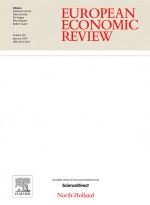The EU's Logic of Security: Politics Through Institutionalised Discourses
This article develops a methodological approach to analyse the logic of security in the European Union (EU) as an inter-subjective construction. Security is established when discursive practices take place at the interplay of three different fields: (1) EU identity constructions; (2) the perception of challenges as security relevant; and (3) constructions of security practices and hence discourses on governance and governmentality. When discursive practices make cross-references between these fields they construct the logic of security. The empirical section applies this method in order to analyse the EU’s logic of security at the turn of the twenty-first century. Understanding the dynamic effects at play between situations of under-development and conflict led not only to the construction of the need to implement civilian as well as military capabilities at the EU level, but this dynamic is also central to understanding the EU’s way of approaching international terrorism.



